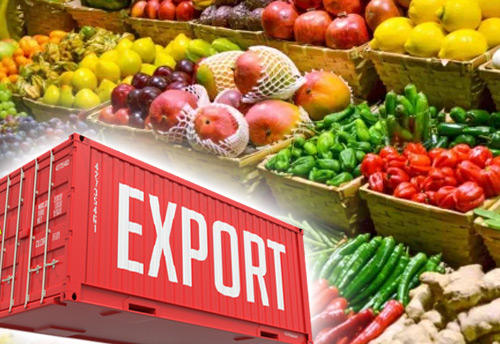
This article takes a look at how to export goods from Nigeria. Nigeria, a nation of over 200 million people, which is the most populous country on the African continent, also holds the record of being the largest economy in Africa. Nigeria is endowed with many natural resources in huge quantities. These include solid minerals, most of which are concentrated in Nasarawa State of Northern Nigeria, cocoa in Southwestern Nigeria, and crude oil, which can be found in South-South and parts of Southeastern Nigeria.
The nation has a considerable export potential, but many people do not know how to profit from the opportunities presented by the availability of these natural resources in Nigeria. If you are planning to enter the Nigerian export business, this article will teach all you need to know about exporting goods from Nigeria to foreign markets.
Exporting commodities from Nigeria to other parts of the world can be highly profitable in many ways. Export has to do with selling your goods and services in foreign markets. Some of the benefits of export include:
- Spreading your risks and decreasing your reliance on the Nigerian market boosts your sales, productivity, and efficiency.
- Creating innovative ideas, marketing strategies, and approaches to improve business practices.
The Nigeria Export Guide
Are you eager to know how you can export goods from Nigeria? Begin your journey to export business by learning How To Obtain Export Licence in Nigeria. If you have gotten your export licence already, just follow this NEPC approved export guide, designed to assist you in getting started. Follow the nine steps below to fully prepare yourself to export goods from Nigeria. Additionally, the guide provides additional information for existing exporters.
Step 1: Export Readiness Checker

The export readiness checker helps to determine if you are ready to export goods from Nigeria to foreign markets. All you need to do in this section is to fill the readiness checker, which is very easy to understand. In this step 1, you are simply expected to answer a “Yes” or “No” questions as shown in the image above.
Step 2: E-Registration

This is the point at which you register online for the Exporters Certificate if you don’t have one already. We have extensively discussed this point in the section that contains “Guidelines & Procedures For E-Registration” above. Kindly refer to the section for more information.
Step 3: Understanding the Market

Every businessperson who wants to succeed must know who needs his products or services to be able to reach out to them with the solution. This is exactly what is required of anyone who wants to be successful in the export industry in Nigeria. First identify your target market(s). in other words, do research on your intended export destination(s). Ask yourself whether your goods will be going to countries in Europe, Asia or other African countries. Thorough market research should not only focus on data and figures, but also on the factors that drive the target market(s).
How To Understand Your Market As An Exporter In Nigeria?
- Deploy many market analysis tools to collect fundamental market information such as import rules, trade figures, tariff regimes, and much more.
- Concentrate your research on a single product or service.
- Investigate your competitors’ market(s) to know what they are doing correctly.
- Attend industry-specific seminars.
- Seek practical guidance from seasoned exporters.
- Use legitimate online directories to get in touch with prospective buyers.
- Know the culture, demography, religion, currency, etc. of your target market environment.
- Attend, if you can, or monitor Trade shows and embassies as they are excellent sources of information.
Research Areas
Here are some of the essential areas of market research you can harness:
- Business environment
- Business culture
- Trade statistics and trends
- Trade policies
- Regulatory framework
- Distribution channels
- Logistics
- Risk assessment
Market Research Tools

There are several market analysis tools available online. Some of these tools are available for free. These tools will help you better understand your target market(s). You can view a list of the necessary tools.
Product Specific Market Research
After gathering and analyzing fundamental market data, you must focus your results to a single product or service. You can make an offer, send samples to potential purchasers, and wait for comments.
International Buyer Directories
International buyer directories are accessible (some are free, while others require paid subscriptions). View a list of buyer directories.
The Advantages Of Market Research
A thorough market research allows you to:
- Determine your most promising market.
- Collect information for your Export Marketing Plan (EMP).
- Understand the competitive environment of your target market.
- Reduce risks while increasing opportunities.
Step 4: Export Plan

After conducting market research, you must create an export strategy.
Export Plan Advice
- Keep your strategy straightforward and concise.
- Always mention your special selling point, which explains how you stand out from the competition.
- Create a workable budget strategy.
- When creating your export plan, pay attention to your target market.
- A solid export strategy leads you smoothly through various export procedures.
- Make sure to include pertinent parties (government agencies, brokers, and financial advisors).
Advantages Of Export Plan
Having an excellent export strategy will put you ahead of your contemporaries in the business and help you to make maximum profit. Below are some of the benefits you stand to get:
- Help you specify your export objectives and match your resources to those objectives.
- Help you concentrate your efforts so that you can give your customers (importers) good service.
- Demonstrates your USP (unique selling proposition).
- Provides management with direction for long-term export commitment.
Key Contents Of Export Plan
A strong export strategy should have the following essential components:
- Company profile (about us)
- Key features of target market(s)
- Competitors’ analysis
- Market entry strategy
- Unique selling points
- Promotional strategy
- Branding (if relevant)
- Logistical planning
- Action plan
- Resources required.
Export plan template
All of the essential components mentioned above are included in the template that NEPC has provided, along with further descriptions for each aspect. It will help you create a thorough export strategy.
Please, DOWNLOAD the PDF file to see more.
step 5: Export Documents & Procedures

Before you will be allowed to export goods and services formally from Nigeria to your desired foreign markets, you must provide export documentation.
Importance of Export Procedures & Documentation
- It reduces your export-related risks.
- Ensure that exported products meet the requirements of the importing country.
- Make sure you satisfy customer criteria by offering proof of origin and delivery, which also helps you formalize your export firm and qualifies you for export incentives.
Required Documents For Export
You are expected to present the following documents at different stages of the export process:
Exporter Licence/Certificate
Your export process begins with NEPC registration as an exporter. This is necessary to start an export firm. To sum up, this document is issued by NEPC after you have registered and paid the necessary processing amount. If you don’t have the certificate yet, you can perform the E-Registration and obtain it.
Export Contract
This is the document that proves the agreement between exporter (seller) and the importer (buyer) outlining the conditions of an export transaction. This document is always issued by the exporter.
Quality Assurance Documents
You can guarantee that your exported items adhere to safety standards by using quality assurance documentation, which are outlined in international treaties and perhaps in the contract’s agreed-upon provisions. It is crucial to use internationally recognized bodies. Relevant paperwork includes:
- Phytosanitary certificate for agricultural commodities (issued by NAQS)
- Health certificate for processed and semi-processed food items (issued by NAFDAC)
- International veterinary certificate for animals and animal products (issued by DVPCS)
- Fumigation certificate for agricultural commodities (issued by FPIS, part of FMITI)
Commercial Documents
The commercial paperwork lists the prices and quantities of the products. The exporter prepares and issues the following documents:
- Performa Invoice: This is a formal offer by an exporter to sell items for a specific price and under specific conditions.
- Commercial invoice: A document that details the worth of goods for export in the transaction’s currency.
- Packing list: It is a listing of the items’ unit packing and total quantity for exports.
Financial Documents
The production of financial paperwork provides proof of the buyer and seller’s financial transaction. Additionally, it demonstrates compliance with the export financial regulation. It contains:
- Nigeria Export Proceed form (NXP): It is issued by a commercial bank. It captures the export transaction’s value to promote economic growth. Additionally, it is a necessary condition for receiving the Export Expansion Grant (export incentive).
- Commercial Invoice: It provides the value of the exported products in the chosen currency. It is relevant for processing the NXP.
- Final Invoice: It shows the true value of the exported items in the transaction’s currency for the importer’s payment purposes.
Goods Movement Documents
This covers every facet of providing the customer with the goods in the manner agreed in the export contract. Included in the documents are:
- Clean Certificate of Inspection (CCI)
- Certificate of Weight and Quality
- Certificate of Origin issued by NACCIMA.
- Bill of Lading (shipping document)
- Air Waybill (shipping document)
- Road Transport Bill (shipping document)
Step 6: Logistics & Freights

Please make sure you comprehend the fundamental terms of delivery (including pricing and paperwork) before starting any export endeavors. You also need to be aware of who is responsible for ensuring that your products are delivered to customers safely. These specifics include the mode of transportation, the time required for delivery, the prerequisites for various products, and the agreed-upon trading conditions.
- How To Cancel Student Loan Application For Institutional Fees Or Upkeep
- Verified NELFUND Student Loan Application Guide With Stage-By-Stage Pictures
- Apply Here: Work In Germany With Germany Opportunity Card
- How To Resolve Nelfund Student Loan Bank Verification Fail Issue
- General Issues Experienced By Student Loan Applicants And How To Resolve Them
It is crucial that you choose knowledgeable freight forwarders and customs brokers. This would guarantee that your products are delivered according to the pre-arranged terms.
Step 7: Export Price/Rates

You need to have a solid understanding of export pricing strategies if you want to be a successful exporter. This covers all matters pertaining to the costing and sourcing of the exportable goods.
Cost Elements For Export Pricing
Make sure to include all export expenses when calculating your export price. Discover all related expenses by category:
- Local export costs
- International export costs
- Other associated export costs
Step 8: Export Financing

Businesses that export need consistent capital over time. Your product and the destination(s) of your exports will have a significant impact on the amount of money required. Therefore, it is crucial to make sure that viable financing options are investigated.
Step 9: Legal Matters

Understanding Nigeria’s and the importing nation’s legal frameworks that govern non-oil exports is crucial before export.
Final Thought
Nigeria is rich in natural resources, such as crude oil, solid minerals, and cocoa. Nigeria has a huge export potential, but establishing an export business in Nigeria requires you to first do the fundamentals, one of which is to secure an export licence. You can obtain this all-important licence online, through the NEPC E-registration platform. Once you have done that, you can now establish your export business in Nigeria by following the export guide we have shown you. We assure you of success in your export business if you follow the guide diligently and implement all the nine steps highlighted and discussed above.

Leave a Reply